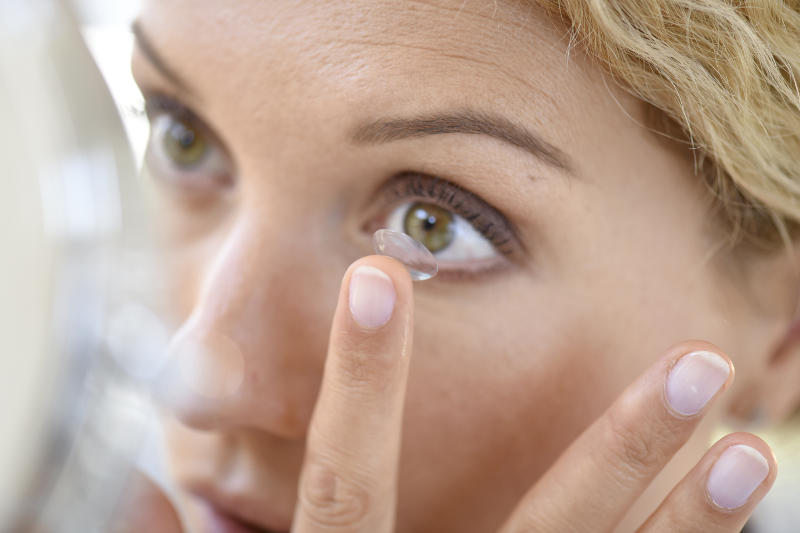Last week, there were several news reports being passed around on news sites and social media that indicated the American Academy of Ophthalmology was recommending all contact lens wearers to discontinue contact lens wear for the time being in an effort to reduce the risk of transmission of COVID-19.
I have to say, I was surprised when this report came out, because I felt there was no substantiating evidence to indicate that contact lens wear would increase the risk for transmission of the virus, presuming patients are practicing good contact lens hygiene techniques.
Over the weekend, the American Academy of Optometry released a statement to their members regarding the reports to suspend contact lens wear, which I feel have validated my original opinions. Here are the highlights for our contact lens wearers:
“A new study published in March of the 2020 edition of Ophthalmology on COVID-19 patients, found that there was no evidence of the virus in tear samples collected from 17 patients from Day 3 to Day 20 of active symptoms.”
This is great news overall because it means that the tear film is unlikely to be a transmission factor! Their report further states the following:
“As you know, there is no scientific evidence that contact lens wear is problematic during this pandemic and these early results are encouraging. It is certainly time to reinforce rigorous hygiene with contact lens wear. Without further evidence to the contrary, the American Academy of Optometry (AAO) believes that contact lenses can still be safely worn as long as people follow the Centers for Disease Control and Prevention’s (CDC) guidance on hand washing as well as their optometrist’s strict contact lens hygiene protocols.
The research literature is clear on how to prevent contact lens infections of all kinds, such as bacteria, viral and fungal diseases.
Contact lens wearers must:
- Wash hands thoroughly, at least 20 seconds with soap and water, and dry hands completely.
- Use daily disposable contact lenses if possible.
- If solutions are required, use them appropriately. Specifically, do not top-up or re-use solutions.
- Replace cases monthly or more frequently. Rinse, wipe, and air-dry contact lens cases every day.
- Do not wear contact lenses when you are ill.
- Do not sleep in your contact lenses unless it is medically necessary.”
Once again, this reinforces that patients are still able to wear their contact lenses as normal, as long as they are practicing proper hygiene techniques.
While the American Academy of Ophthalmology’s report indicates that contact lens wearers are far more likely to touch their faces than glasses wearers, what they do not account for is how often glasses wearers touch their glasses to adjust them or remove them to clean them. Does this mean that glasses wearers shouldn’t wear their glasses? Certainly not! Instead, I would strongly recommend that patients make sure they clean their glasses with warm soapy water (non-antibacterial soap without added lotions/moisturizers) at least once per day if you are leaving your home.
All in all, contact lens wear is still safe and can continue as normal, as long as you’re practicing good hygiene, especially with the tips listed above.
If you do encounter a contact lens related eye infection (or any ocular issues for that matter) during this time, remember, we are still available for these types of appointments. Our goal is to make sure patients who need urgent or emergency eye care remain out of urgent cares and ERs and therefore reduce their risk of exposure to patients who are currently infected with COVID-19.
A few of us are remaining on site at Mt. View EyeCare until further notice in order to handle contact lens orders, glasses pickups, billing services, and emergency eye care issues until further notice.
We will try to continue posting updates to our website, so if you have further questions, please consult our website first or feel free to call us at 360-253-4405 or email info@mtvieweyecare.com if you feel your question has not been answered.
We do hope you continue to remain safe and healthy!
Dr. Nick, Dr. Soper, and the rest of the Mt. View EyeCare family

